
The classical guitar, also called Spanish guitar, is a member of the guitar family used in classical music and other styles. An acoustic wooden string instrument with strings made of gut or nylon, it is a precursor of the modern steel-string acoustic and electric guitars, both of which use metal strings. Classical guitars derive from the Spanish vihuela and gittern of the 15th and 16th century. Those instruments evolved into the 17th and 18th-century baroque guitar—and by the mid-19th century, early forms of the modern classical guitar. Today's modern classical guitar was established by the late designs of the 19th-century Spanish luthier, Antonio Torres Jurado.

Slapping and popping are ways to produce percussive sounds on a stringed instrument. They are primarily used on the double bass or bass guitar. Slapping on bass guitar involves using the edge of one's knuckle, where it is particularly bony, to quickly strike the string against the fretboard. On bass guitars, this is commonly done with the thumb, while on double bass, the edge of the hand or index finger may be used. Popping refers to pulling the string away from the fretboard and quickly releasing it so it snaps back against the fretboard. On bass guitar, the two techniques are commonly used together in alternation, though either may be used separately.

Fingerstyle guitar is the technique of playing the guitar or bass guitar by plucking the strings directly with the fingertips, fingernails, or picks attached to fingers, as opposed to flatpicking. The term "fingerstyle" is something of a misnomer, since it is present in several different genres and styles of music—but mostly, because it involves a completely different technique, not just a "style" of playing, especially for the guitarist's picking/plucking hand. The term is often used synonymously with fingerpicking except in classical guitar circles, although fingerpicking can also refer to a specific tradition of folk, blues and country guitar playing in the US. The terms "fingerstyle" and "fingerpicking" are also applied to similar string instruments such as the banjo.
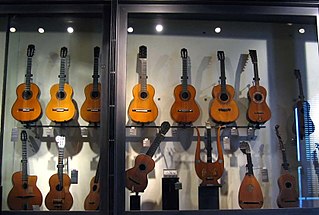
The following outline is provided as an overview of and topical guide to guitars:

Flatpicking is the technique of striking the strings of a guitar with a pick held between the thumb and one or two fingers. It can be contrasted to fingerstyle guitar, which is playing with individual fingers, with or without wearing fingerpicks. While the use of a plectrum is common in many musical traditions, the exact term "flatpicking" is most commonly associated with Appalachian music of the American southeastern highlands, especially bluegrass music, where string bands often feature musicians playing a variety of styles, both fingerpicking and flatpicking. Musicians who use a flat pick in other genres such as rock and jazz are not commonly described as flatpickers or even plectrum guitarists. As the use of a pick in those traditions is commonplace, generally only guitarists who play without a pick are noted by the term "fingerpicking" or "fingerstyle".
An acoustic guitar is a musical instrument in the string family. When a string is plucked, its vibration is transmitted from the bridge, resonating throughout the top of the guitar. It is also transmitted to the side and back of the instrument, resonating through the air in the body, and producing sound from the sound hole. While the original, general term for this stringed instrument is guitar, the retronym 'acoustic guitar' – often used to indicate the steel stringed model – distinguishes it from an electric guitar, which relies on electronic amplification. Typically, a guitar's body is a sound box, of which the top side serves as a sound board that enhances the vibration sounds of the strings. In standard tuning the guitar's six strings are tuned (low to high) E2 A2 D3 G3 B3 E4.

Tim Sparks is an American acoustic guitar player, singer, arranger and composer.
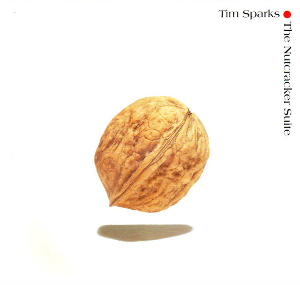
The Nutcracker Suite is a recording by American guitarist Tim Sparks, released in 1993. It consists of both an adaptation for acoustic guitar of Tchaikovsky's suite from his 1892 ballet The Nutcracker and the Balkan Dreams Suite, a suite of songs based on melodies and ideas of Béla Bartók. Sparks won the 1993 National Fingerstyle Guitar Championship playing his solo guitar arrangement of Tchaikovsky's "Nutcracker Suite".

Preston Reed is an American fingerstyle guitarist. He is noted for a two-handed playing style and compositional approach that uses the guitar's body as a percussion instrument.

Pat Kirtley is an American fingerstyle guitarist, composer and guitar educator.

Music for Children is the first release in John Zorn's Music Romance Series and features three Naked City compositions performed by Zorn with the band Prelapse; a 20-minute composition for wind machines and controlled feedback systems dedicated to Edgar Varese, and a classical chamber music piece for violin, percussion and piano performed by the Abel-Steinberg-Winant Trio framed by a poly-rhythmic etude for percussion and celeste and a lullaby for music box.
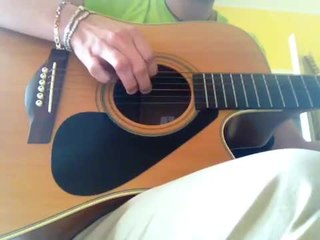
Guitar picking is a group of hand and finger techniques a guitarist uses to set guitar strings in motion to produce audible notes. These techniques involve plucking, strumming, brushing, etc. Picking can be done with:
"Anji" is an acoustic fingerstyle guitar piece composed and recorded by noted folk guitarist Davy Graham in 1961 and originally released as part of his EP debut 3/4 AD. The piece is one of the best-known acoustic blues-folk guitar pieces ever composed, with many notable artists covering it, such as Bert Jansch, John Renbourn, Lillebjørn Nilsen, Paul Simon, and Harry Sacksioni. The song is in the key of A minor and is notable for its trademark descending bassline. However, the original recording by Davy Graham is in the key of C minor with a capo at the third fret.
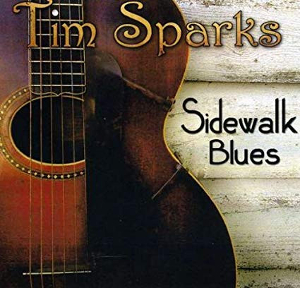
Sidewalk Blues is an album by American guitarist Tim Sparks, released in 2009. It marks a return to 'roots' music for Sparks after three albums of klezmer and jazz recordings on the Tzadik Records label.

Georgia Stomps, Atlanta Struts and Other Contemporary Dance Favorites is a live album by American fingerstyle guitarist and composer John Fahey, released in 1998. It was the second and last live album he recorded and released during his lifetime.
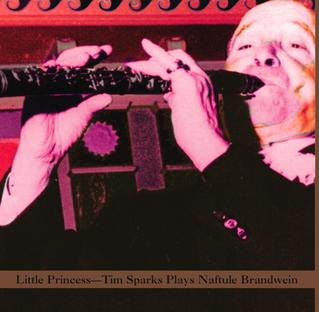
Little Princess is the eighth album by guitarist Tim Sparks and his fourth on the Tzadik Records label. It is a tribute album to the music of Klezmer clarinetist Naftule Brandwein.

Peter Finger is a German acoustic fingerstyle guitarist, songwriter, composer and record producer. His most notable recordings include "Just Another Day in May", "Vielleicht Im Nächsten Leben", "Fanesca", "For You", "101 South", "Blue Horizon", and "No Man's Land".

7 NADEs is the debut album by violinist/multi-instrumentalist Eyvind Kang which was released in 1996 on John Zorn's Tzadik Records as part of the Composer Series.

Steve Masakowski is an American jazz guitarist, educator, and inventor. He invented the guitar-based keytar and the switch pick, and has designed three custom-built seven-string guitars. He developed an approach to playing the guitar by using his pick design, allowing him to switch from fingerpicking to flatpicking.

Freedom Jazz Dance is an album by Ethnic Heritage Ensemble, a jazz band formed by percussionist Kahil El'Zabar, who is joined by trombonist Joseph Bowie, saxophonist Ernest Dawkins and special guest guitarist Fareed Haque. It was recorded in 1999 and released on Delmark.


















